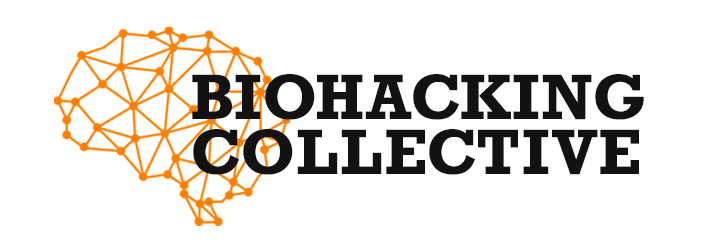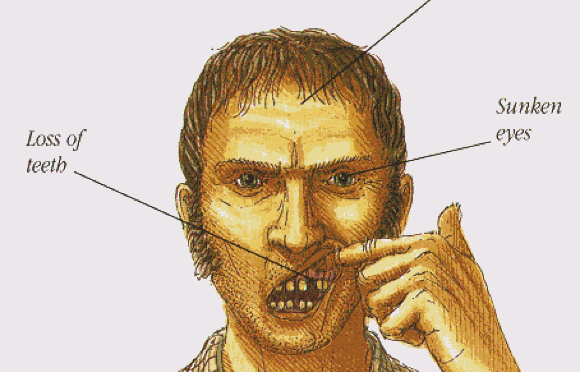Since 2008 I have eaten LCHF or ketogenic and combined it with fasting. This diet has really helped me overcome many of my health problems. In 2017 I started to hear and read a lot about people who where on a so called “carnivore diet” which is a diet that only consists of meat and animal products.
At first, I was very skeptical, as this goes against most of the things I learned recently about diet and health. But I recognized skepticism from the first time I heard of low carbohydrate diet. Not eating more than 5% of carbohydrates and pushing 80% of the calories from fat then felt like madness.
I decided in early 2018 to test the carnivore diet. I thought that the transition would be relatively thin free from keto to carnivore as I was already quite high on protein and fat intake.
What I noticed at first was that I felt very tired after eating, it was almost like I started eating carbohydrates again. My cravings for sweets initially increased and I had to be really disciplined to not follow my cravings for sweets. Perhaps not so strange as the large amounts of protein probably stimulate more gluconeogensis and also that the increased amount of protein releases more insulin per se.
In the beginning, my stomach did not feel good about this change either. I suppose that the bacteria that normally used to make vegetable fibers break down began to die and that there is an adaptation in the intestinal flora to optimize it against breaking down protein. This is perhaps something that could be hacked by the use of digestive enzymes.
During the first few weeks, I also noticed an increased pulse during my sleep, which I measure with my oura ring.
However, these problems were a transitional phase, and after a couple of weeks and a with little adjustments to my food schedule, both stomach sleep and energy levels were on top.
I felt that I got more strength in the gym and also noticed that small inflammations that I received from the training started to disappear. The biggest change, however, occurred with my stomach from having been chaos before keto. To be later periodically really good during my keto / paleo / fasting protocol to become perfect. No feeling of bloating at all.
But of course I missed my vegetables so even though I got good results, I decided to phase in some vegetables again. To start eating fiber again after 2 months but is perhaps not the best experience and I recommend starting carefully. Maybe phasing in with leafy vegetables and other things you know you tolerate well.
However, I felt that there was something with a carnivore diet that was really good for my health. My stomach had improved my sleep had also improved over time and above all I noticed that it was much easier to build muscle.
So after 2 months with keto I decided to go back to carnivore for a longer experiment.I set the time for a diet of meat, butter egg for at least 6 months. Then to start measuring my blood values and see what impact a carnivorous lifestyle had on my health .
A certain concern for a high protein diet and mTor was something that worried me a bit so I decided to stick to a protocol where I implement a daily fast of 12-18 hours and also some longer fast once per month. What is now mTor? You may be wondering. To make it very simple
so one can say that mTor controls the growth and production of proteins in the body and to stimulate this continuously by eating a lot of protein can increase the risk of getting cancer. By implementing fasting, there will be periods during the day when mTor is lower and this should be able to reduce the risk of cancer somewhat. And let the body cleans out debris by a process called autophagy. If one simplifies the concept then one could say that mTor and autophagy have an inverted relationship ie when one is high, the other is low and vice versa.
Other concerns about a diet without carbohydrates. Of course, it is possible to increase the risk of various vitamin deficiencies. The body cannot make vitamin C. One has heard stories of daggers who get scurvy because of a diet with little vitamin C.
But when I started to read about this, I quickly realized that this only applies if you consume carbohydrates. The glucose molecule apparently competes out of the vitamin C molecule and when eliminating carbohydrates from the diet, the need falls sharply.
So how does one day look and what do I really eat?
I currently eat about 2 meals a day and my first meal is about 12-13 o’clock. Then I eat dinner as early as possible because I noticed that it is better for my sleep to be optimal the last meal should be between 16-18. I eat about 70-80% fat and the rest is protein. I only buy grass grazed meat and game and only run organic butter / ghee and eggs. I would guess that the amount of meat on average is 750g a day.
How do I feel?
I have now, at the time of writing, followed a strict carnivore diet since August and feel very good. I have had difficulty building muscle on a ketogenic diet and had become very slim. During this year I have gained 8-10kg and became much stronger without putting on unnecessary fat. I no longer have any small inflammations from the exercise and I feel awake and alert during the daytime.
What are the disadvantages?
Most of the disadvantages have to do with the social, since people have a tendency to question my lifestyle from an ecological perspective which is a long discussion which I will not go into here. The other disadvantages are of course that there are not many long-term studies on what happens to the body on the carnivore diet. But what you notice is that for more and more people, it is an excellent tool to rid oneself of self from many different autoimmune diseases and I hear daily stories about people who fix themselves.
So what does the lab say?
My first lab results look at inflammation markers, liver, kidneys and blood counts. Most of the values are still within the ref values and I am categorized as fully healthy. It is also difficult to define what are good reference values since all ranges are based on values from people who eat a standard diet. When it comes to my CRP values, which is a marker for inflammation, they have dropped a lot, but I do not know how good the first measurement was when it says only less than 5 in results.
| Parameter | before | after (1) |
| P-glukos | 5.7 (mmol/L) | 6,0 mmol/L |
| HbA1c | 30 (mmol/mol) | 34 (mmol/mol) |
| B-SR | 4.9 ( (10)/L) | 2 (mm/h) |
| B-LPK | 4.7(10(9)/L) | 4,3(10(9)/L) |
| B-TTPK | 275 (10(9)/L) | 256 (10(9)/L) |
| B-Hb | 144 | 150 |
| B-EPK | 4.9 10(12)/L | 5,2 10(12)/L |
| Erc-MCV | 88 (fL) | 90 (fL) |
| Erc-MCH | 29.2 (Pg) | 29 (Pg) |
| Erc-MCHC | – | 322 (g/L) |
| Neutrofiler | – | 1,9(x10*9/L) |
| Lymfocyter | – | 1,9 (x10*9/L) |
| Monocyter | – | 0,3(x10*9/L) |
| Eosinofila | – | 0,1(x10*9/L) |
| Basofilia | – | 0(x10*9/L) |
| S-protein | – | 62 (g/L) |
| S-crp | <5 (mg/L ) | <1 (mg/L) |
| S-natrium | 142 (mmol/L) | 142 (mmol/L) |
| S-kalium | 3.8 (mmol/L) | 4,3 (mmol/L) |
| S-Bilirubin | – | 6,4 (µmol/L) |
| S-ALP | – | 0,92 (µkat/L) |
| S-ASAT | 0.53 (µkat/L) | 0,32 (µkat/L) |
| S-ALAT | 0.66 (µkat/L) | 0,38 (µkat/L) |
| S-Kreatinin | 103 (µmol/L) | 89 (µmol/L) |
The only thing that is slightly different is that my fasted blood sugar has gone up while my long-term sugar even though it has risen slightly has is still low. This is absolutely not worrying and can be accredited to the so-called dawn phenomenon which is also common in the keto world. For a period of 8 weeks I will take 4-5 blood tests with the same markers to ensure good accuracy of the results. Then follow up with a more advanced analysis where blood fats, vitamins and hormones are checked. Please feel free to comment and comment on whether you notice anything of interest. But a first conclusion is that the diet’s effect on blood values is not huge after about a year.
Great tips if you are looking to test carnivore diet:
Test a good app like this where there is also the possibility to put in important blood values:
http://mycarnivorecoach.com/tag/carnivore-diet-app/
or just write to us here at biohackingcoloective.com and we will help you get started!

